News/Events

Celebrating International Women’s Day
8th March marks International Women’s Day, hear from two women who work in research at the NIHR Cambridge Biomedical Research Centre.Read more
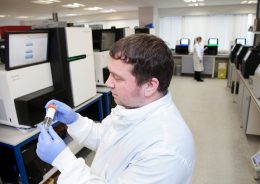
Genomics study identifies routes of transmission of coronavirus in care homes
Genomic surveillance – using information about genetic differences between virus samples – can help identify how SARS-CoV-2 spreads in care home settings.Read more
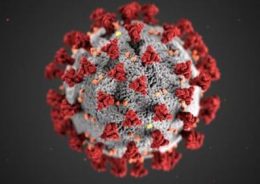
Single dose of Pfizer BioNTech vaccine reduces asymptomatic infections and potential for SARS-CoV-2 transmission
New data suggests that a single dose of the Pfizer BioNTech vaccine can reduce by 75% the number of asymptomatic SARS-CoV-2 infections.Read more

Can a tapeworm drug boost protection from Covid-19 for high-risk kidney patients?
A new trial led by Cambridge launches to see if the drug niclosamide, usually used to treat tapeworms, can prevent Covid-19 infection in vulnerable, high-risk kidney patients.Read more
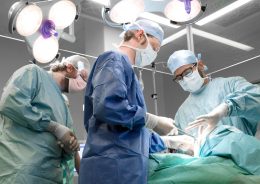
Could repairing damaged donor livers be the key to increasing life-saving transplants?
Researchers have found a way to grow ‘mini bile ducts’ in a lab-setting to repair damaged livers.Read more

Pfizer BioNTech vaccine likely to be effective against B1.1.7 strain of SARS-CoV-2
The Pfizer BioNTech vaccine BNT162b2 is likely to be effective against the B1.1.7 variant of SARS-CoV-2, even though its efficacy is modestly affected. However, when the E484K mutation – first seen in the South African variant – is added, it substantially increases the amount of antibody required to prevent infection.Read more

New research suggests COVID-19 severity can be predicted in hospitalised patients
Research conducted at Addenbrooke’s hospital and supported by the NIHR Cambridge Biomedical Research Centre has found it may be possible to predict which patients will go on to develop severe or long-term COVID Read more

DNA test can quickly identify pneumonia in patients with severe COVID-19, aiding faster treatment
Researchers have developed a DNA test to quickly identify secondary infections in COVID-19 patients, who have double the risk of developing pneumonia while on ventilation than non-COVID-19 patients.Read more

Mindfulness can improve mental health and wellbeing – but unlikely to work for everyone
Mindfulness courses can reduce anxiety and stress and increase mental wellbeing but not in all non-clinical settings and may be no better than other practices aimed at improving mental health and wellbeing.Read more
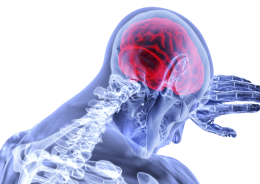
Dexamethasone should be avoided in patients with chronic subdural haematoma
A commonly-used treatment for chronic subdural haematoma could lead to a worse outcome than receiving no medication. Read more

Symptoms of depression linked to increased risk of heart disease and stroke
People who experience symptoms of depression are more likely to go on to develop heart disease or suffer a stroke than those who report good mental health.Read more

Apathy could predict onset of dementia years before other symptoms
Apathy – a lack of interest or motivation – could predict the onset of some forms of dementia many years before symptoms start. Read more
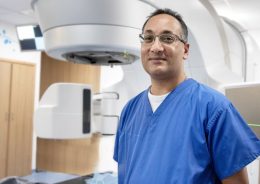
AI speeds up cancer treatment
Doctors aim to drastically cut cancer waiting times using artificial intelligence to automate lengthy radiotherapy preparations.Read more

Rhythm and bleughs: how changes in our stomach’s rhythms steer us away from disgusting sights
Disgust is a natural response to unpleasant sights, but for some people, disgust can become pathological, affecting their mental health and quality of life.Read more
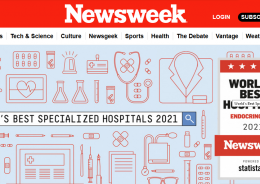
Addenbrooke’s specialist endocrinology services ranked best in UK
In their annual specialist hospital rankings, Newsweek has rated the specialist diabetes and endocrinology services at Addenbrooke’s Hospital as the best in the UK, and 20th internationally. Patients attending clinics through this service Read more

Software tool will help doctors identify and prevent hospital transmission of SARS-CoV-2
A new software tool developed in Cambridge will help doctors identify where cases of COVID-19 were caused by transmission within a hospital, helping them to prevent further spread of the disease.Read more
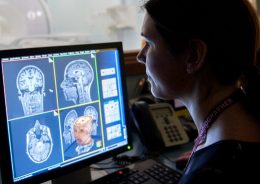
Age and pre-existing conditions increase risk of stroke among COVID-19 patients
Fourteen out of every 1,000 COVID-19 patients admitted to hospital experience a stroke, a rate that is even higher in older patients and those with severe infection and pre-existing vascular conditions, according to a report.Read more
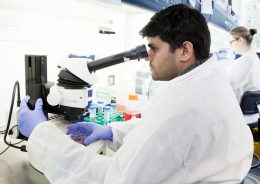
Tiny golden bullets could help tackle asbestos-related cancers
Gold nanotubes – tiny hollow cylinders one thousandth the width of a human hair – could be used to treat mesothelioma, a type of cancer caused by exposure to asbestos.Read more
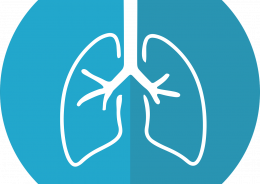
‘Mini-lungs’ reveal early stages of SARS-CoV-2 infection
To better understand how SARS-CoV-2 infects the lungs and causes disease, a team of scientists from the UK and South Korea turned to organoids – ‘mini-organs’ grown in three dimensions to mimic the behaviour of tissue and organs.Read more
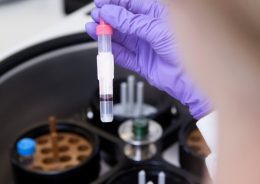
Supporting research at Cambridge University Hospitals
As the COVID-19 situation develops, research staff at CUH continue our support of COVID-19 research studies, including Urgent Public Health Studies (UPH), while maintaining safe recruitment to existing open studies. Read more


